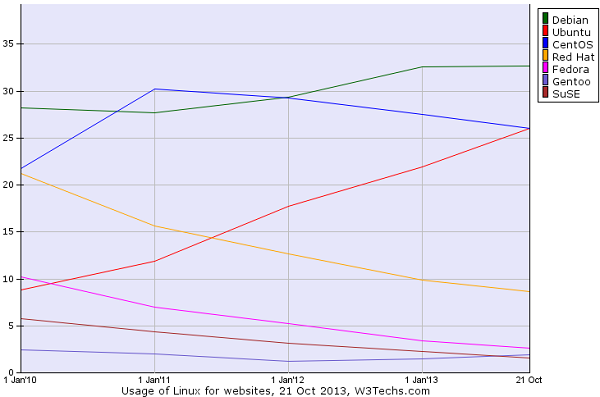Featured products and servicesadvertise here
Blog CategoriesAllNews AddToAny Adobe Commerce Adobe DTM AdRoll Advertising Networks Akamai Alibaba Amazon Amazon Associates Amazon CloudFront Angular Animate Apache ASP.NET ASP.NET Ajax Baidu Analytics Baidu Share Bitrix Blogger Bootstrap CDNJS CentOS Character Encodings China Telecom China Unicom Chitika Client-side Languages Cloudflare Cloudflare Server ColdFusion Compression Concrete CMS Content Delivery Content Languages Content Management Cookies CSS Frameworks Data Centers DataLife Engine Debian Default Protocol Https DigiCert DigiCert Group Discuz! DNS Servers Dojo DoubleClick Drupal Elementor Email Servers Ensighten Equativ ExoClick Fastly Fedora Flash Full Circle Studies Gemius Gentoo GlobalSign Gmail GoDaddy Group Google +1 Google Ads Google AdSense Google Analytics Google Hosted Libraries Google Servers Google Tag Manager GridPane Gunicorn Histats Hostinger Hotjar HTML HTML5 HTTP/2 HTTP/3 IdenTrust Image File Formats Infolinks IPv6 Java JavaScript JavaScript Libraries Joomla JQuery JQuery CDN JsDelivr Let’s Encrypt Liferay Linux LiteSpeed Lodash Markup Languages Matomo Matomo Tag Manager Meta Pixel Microsoft Microsoft Advertising Microsoft-IIS Modernizr MooTools New Relic Newfold Digital Group Nginx Node.js Operating Systems OVH PHP Plesk Plone PNG PopAds PrestaShop Prototype Python Quantcast React Red Hat Reverse Proxies Ruby RunCloud Scala Scientific Linux Sectigo Server Locations Server-side Languages SharePoint Shopify Silverlight Site Elements Snowplow Social Widgets SPDY Squarespace SSL Certificate Authorities Symantec Group Tag Managers Tailwind Tealium Team.blue Tomcat Top Level Domains Traffic Analysis Tools Twitter/X TYPO3 Ubuntu UIkit Umeng Underscore United Internet Unix Unpkg UTF-8 VBulletin Web Hosting Web Panels Web Servers Webflow Windows Wix WordPress WordPress Jetpack XHTML Yandex.Direct Yandex.Metrica YUI Library |
Debian/Ubuntu extend the dominance in the Linux web server market at the expense of Red Hat/CentOSPosted by Matthias Gelbmann on 21 October 2013 in News, CentOS, Linux, Operating Systems, Red Hat, UbuntuAt the beginning of 2010, Red Hat combined with its derivatives CentOS and Fedora had 53.2% of the web server Linux distributions, while Debian and Ubuntu combined only had 37.1%. Now that percentages have changed to 37.3% vs. 58.5% and Debian/Ubuntu have a double lead.
Ubuntu is the shooting star and currently gains around 500 of the top 10 million websites every single day. Sites switch to Ubuntu from Debian just as readily as from CentOS and Red Hat, while CentOS is still gaining sites from Red Hat and Fedora, but is losing to the Debian camp. Ubuntu is also the most popular distribution among the top 1000 sites, ahead of Debian. While we are at it, let's have a look at other web technologies and how they combine with the various Linux distributions. CentOS is the most popular distribution among Java-based and Perl-based sites, while Debian leads among the sites written in PHP and Python, and Ubuntu leads the sites based on Ruby and JavaScript. CentOS is slightly more popular than Debian on sites that run the Apache web server while Debian clearly dominates the sites that use Nginx. There are also significant differences in Linux preferences when looking at individual countries. Debian is the most popular system in Germany, France, Italy, Spain, Russia and Eastern Europe. CentOS is leading in Japan, China, India, Vietnam and UK, and Ubuntu in South Africa, Australia, Brazil, Argentina, Sweden and Norway. Red Hat is the most popular Linux distribution on .edu and .gov sites. Popularity should never be the most important factor when choosing a Linux distribution for a web server, but it is always good to know what other webmasters are doing. So you might want to keep an eye on those charts. _________________ Share this page5 commentsWillie on 24 October 2013 What is the most popular distribution in the US? Reply by author Matthias Gelbmann on 24 October 2013 Hi Willie, Most popular in the US is CentOS. xShaun on 24 October 2013 "Most popular in the US is CentOS." Just wondering how you worked that out - GNU/Linux distro's are hard to count since anyone can copy/distribute. Windows and Mac have sales figures that they use to count number of sales ....there is no reliable figure to use to count how many or how many of which distro is in use. Reply by author Matthias Gelbmann on 24 October 2013 @xShaun: we don't count the number of copies distributed, we visit websites, see our overview and FAQ. eliotime3000 on 28 October 2013 Well, Debian is most comfortable to update without to do a clean install. |


 LinkedIn
LinkedIn
 Mastodon
Mastodon
 Bluesky
Bluesky